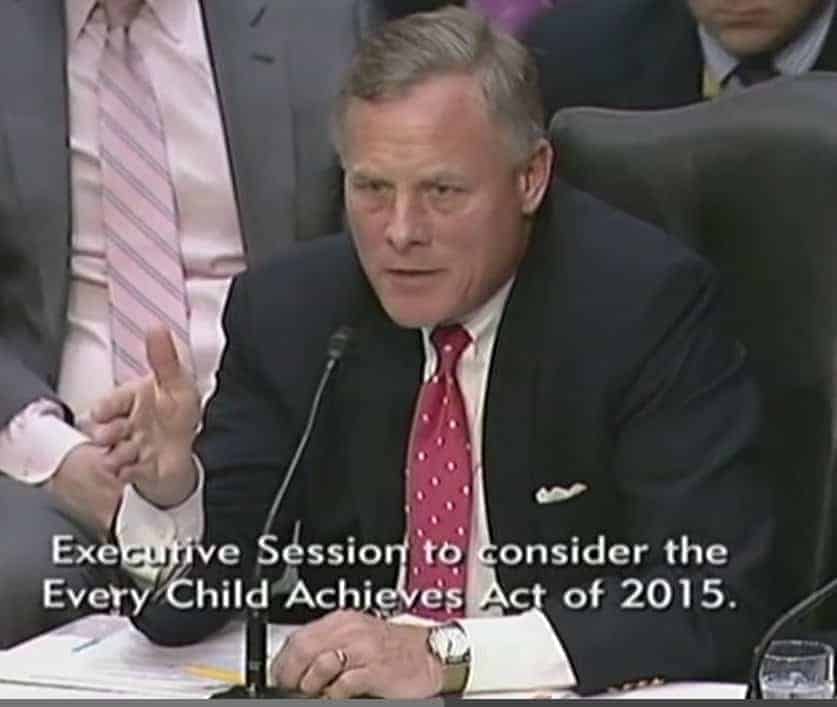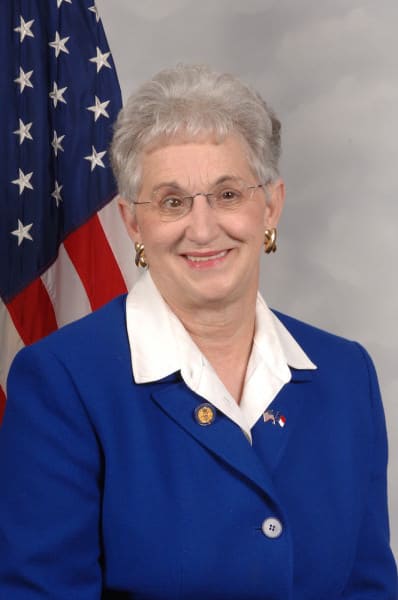

It’s been a long few months since Congress started working on a major overhaul of No Child Left Behind, the controversial 2002 law that has led to more standardized tests and more accountability in schools.
But this month, Congress moved one step closer to a successful reauthorization, though there is still a long way to go — on April 16, the Senate education committee unanimously passed a bipartisan bill that would give states more flexibility, which could lead to fewer tests.
And one of the bill’s amendments could have some major implications for North Carolina teachers: a change in a federal funding formula would give $23.5 million more each year to high-need school districts in the state for teacher and principal training and recruitment. That’s an increase of 47 percent in funding.
The amendment was introduced by North Carolina’s Sen. Richard Burr, a Republican.
For the past 15 years, he said in a statement, “funding that was intended to support low-income students and their teachers has gone to more affluent parts of the country, leaving North Carolina’s poorest children without the money they deserve.”
Burr’s amendment would alter the funding formula so there’d be more weight attached to the number of students in poverty — 80 percent — versus 20 percent on population. (According to Education Week, the formula is currently weighted 65 percent on poverty and 35 percent on population.)
There was some sparring in the committee between Burr and Sen. Robert Casey, a Democrat from Pennsylvania, who wanted to keep No Child Left Behind’s “hold harmless” provision, which means specific schools would be safe from substantial funding cuts, Education Week reported. With Burr’s amendment, states like Pennsylvania that have shrinking populations and relative wealth would lose funding.
Burr countered with an amendment that would slowly phase out the “hold harmless” provision over the next seven years, according to Education Week.
In a passionate speech to the committee members, Burr said the hold harmless provision meant that states weren’t seeing any additional funding as populations shifted.
“In other words, we’re picking kids in Pennsylvania over kids in North Carolina or kids in any other state,” he said. “If we’re truly here reauthorizing a program for K-12 education, do we not have an obligation to get it right? To write a formula that reflects the realities of where the population is that we’re trying to impact?”
To Casey, he said, “For you to keep that money takes it away from my kids, my kids in poverty. It doesn’t reflect when you hold it out the demographic shift in America.”
The North Carolina Association of Educators applauded Burr’s amendment and said it made the Senate’s bill stronger.
Still, Terry Stoops, director of education studies at Raleigh’s John Locke Foundation, cautioned against putting too much stock in amendments at this early stage.
“As interesting as the amendments are right now, the bill still has a far ways to go,” he said.
While the Senate committee passed the bill in a bipartisan fashion, the debates on the floor could be brutal. And then the bill has to get through the GOP-controlled House, which had its own attempt at reauthorization stall because, according to several news outlets, many Republicans didn’t feel the committee’s bill was conservative enough.
In the last couple of months, I spoke to Rep. Alma Adams, a Democrat, and Rep. Virginia Foxx, a Republican, about their own priorities for the reauthorization.
The proposal for federal money to follow poor students to the school of their choice, including a charter school, divided them sharply. Adams thinks that diverting the money away from the school districts will hurt the poorest children who stay behind. Foxx thinks the money should stay with the child to directly meet their needs.
Stoops agreed with Foxx. North Carolina, he said, has many “charter schools that would be in a better position to educate those students if they had Title I funding that’s usually reserved for public schools.”
North Carolina has 148 charter schools right now and is adding 11 more next school year.
It’s not yet sure when the bill will hit the Senate floor for debate, but the final version may look very different than what the committee has brought forth.
“More work is needed to ensure every child has opportunities for a quality education, regardless of their zip code,” said the N.C. Association of Educators president Rodney Ellis in a statement.


